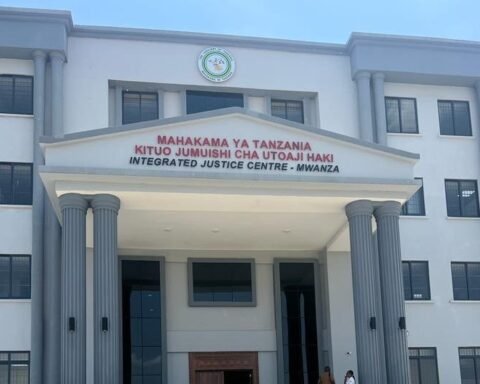In a significant policy shift aimed at enhancing the dignity and welfare of retired public servants, the Government of Tanzania has announced a sweeping 149.8 percent increase in the minimum monthly pensions for retirees paid directly by the Treasury.
This measure was revealed by the Minister for Finance and Planning, Dr. Mwigulu Nchemba, during the presentation of the 2025/2026 National Budget before the Parliament of Tanzania on Thursday, June 12, 2025, in Dodoma, the country’s political capital.
“In appreciation of the long service of our senior citizens, the government will raise the minimum monthly pension from Sh100,125.90 to Sh250,125.90, effective July 2025,” Dr Nchemba announced.
This increase benefits a specific group of Treasury-paid pensioners—retired civil servants who served before the implementation of contributory pension schemes such as the Public Service Social Security Fund (PSSSF) and the National Social Security Fund (NSSF). These retirees often worked during Tanzania’s post-independence era under the First Republic and do not fall under modern contributory systems introduced in the early 2000s.
The announcement comes amid a growing national conversation on social protection and the role of the state in ensuring economic security for older citizens. It aligns with the policy direction of the Sixth Phase Government under President Samia Suluhu Hassan, who has championed reforms targeting social equity, public service, and improved living standards.
“This is a win for justice and human dignity,” said Mzee Joseph Mwakilasa, a retired government employee from Mbeya. “For years we have lived under tight conditions, and this change will allow us to breathe.”
Social and Economic Impacts
Economists argue that boosting pensions will have a ripple effect on the broader economy. It increases purchasing power among the elderly and helps drive consumption in rural and urban markets alike. According to experts, a financially secure elderly population eases the pressure on younger family members and can support broader poverty reduction strategies.
Also Read; Congo Challenges China’s Hold on Cobalt Trade
However, the policy also comes with fiscal implications. The Ministry of Finance is expected to allocate billions more to the national pension bill, though Dr Nchemba affirmed that the government has made “adequate provisions” to accommodate the increase without disrupting other public services.
Stakeholders across sectors—including civil society groups, pensioners’ associations, and development economists—have praised the move, urging the government to institutionalize regular pension reviews to keep up with inflation.
This landmark announcement reinforces Tanzania’s commitment to building an inclusive society where retirement no longer equals neglect. As Parliament debates the full scope of the Finance Bill in coming weeks, attention is expected to turn toward ensuring similar reviews for other vulnerable groups.







